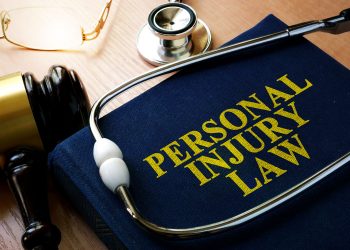As a personal injury lawyer operating in Omaha, Nebraska, I understand that navigating the aftermath of an accident can be overwhelming. When you suffer an injury due to someone else’s negligence, the physical, emotional, and financial burdens can be sudden and severe. This is the realm where personal injury law becomes crucial, providing a path for victims to seek compensation and justice. My role is to guide clients through this complex legal landscape, ensuring they understand their rights and the remedies available to them under the law.
Omaha’s legal climate, with zip code 68102 being a hub of activity, requires a personal injury attorney in Omaha with both a deep understanding of Nebraska’s legal framework and a committed presence in the local community. Personal injury attorneys in this area specialize in a variety of cases, from automobile accidents to work-related injuries, and are equipped to offer personalized legal strategies tailored to each client’s unique situation.
In my practice here in Omaha, I pride myself on combining a personalized approach with a confident, knowledgeable handling of personal injury cases. My goal is always to achieve the best possible outcome for my clients, advocating for their rights with the steadfast determination necessary to confront insurance companies and at-fault parties head-on. For anyone facing the daunting prospect of recovering from an injury, a personal injury lawyer is a critical ally in the journey toward fair compensation and recovery.
Understanding Personal Injury Law in Omaha
In Omaha, personal injury law is aimed at protecting victims’ rights while holding negligent parties accountable. My focus is to illuminate the legal nuances and help you understand how effective representation could be pivotal in a personal injury case.
Legal Framework and Rights
Personal injury law in Omaha is governed by Nebraska state law, which includes the principle of negligence. Negligence is established when someone fails to take reasonable care, resulting in injury to another person. As a victim, you have the right to pursue compensation for damages through a civil trial. The statute of limitations in Nebraska typically allows for four years from the date of the injury to file a lawsuit, though this limit is two years for personal injury claims against the city or state.
- Rights: Legal right to compensation if injured due to someone else’s negligence.
- Negligence: Must be proven for a successful personal injury claim.
- Trial: Civil courts in Omaha decide on personal injury cases.
- Statute of Limitations: Four years to file, reduced in cases against government entities.
Types of Personal Injury Cases
In Omaha, personal injury cases can encompass a diverse array of incidents. Common types of cases include:
- Car and Truck Accidents: Seeking damages for injuries sustained in vehicle collisions.
- Slip and Fall: Pursuing liabilities for injuries from falls due to unsafe property conditions (premises liability).
- Medical Malpractice: Compensation for injuries due to healthcare professionals’ errors.
- Wrongful Death: Claims made by the deceased’s relatives due to negligence.
- Product Liability: Holding manufacturers accountable for defective or dangerous products.
- Workers’ Compensation: Coverage for employees injured on the job, including construction site accidents.
- Dog Bites and Catastrophic Injuries: Seeking justice for severe injuries and emotional distress caused by others, including animal attacks.
Each type of case requires specific knowledge and an approach tailored to the details of the incident.
The Role of Experience in Legal Success
The outcome of a personal injury case can be significantly influenced by the experience and expertise of the legal advocate. A knowledgeable personal injury lawyer is a vital ally in navigating the complexities of the legal system. In my practice, I leverage my expertise in various components of Omaha’s personal injury law:
- Knowledge: Deep understanding of local and state laws.
- Advocate: Serving as a committed representative for my clients’ interests.
- Lawyer and Attorney Skills: Expertise in evidence gathering, case presentation, and negotiation.
Hiring an attorney with a proven track record increases the chances for a favorable outcome, whether it’s a settlement or a verdict at trial.
Choosing the Right Personal Injury Lawyer
When selecting a personal injury lawyer in Omaha, it is vital to evaluate their experience and approach to handling personal injury cases, as this directly impacts the representation you will receive.
Criteria for Selecting an Attorney
When assessing personal injury lawyers, I ensure they have a robust track record in handling cases similar to mine. Key factors include:
- Experience: Look for attorneys with a history of securing settlements or verdicts for accident victims.
- Skill: Gauge the attorney’s ability to navigate settlement negotiations effectively.
- Resources: Confirm that the law firm has the necessary resources to fully investigate and present your case.
- Expertise: Make sure the lawyer specializes in personal injury law, rather than juggling multiple practice areas like employment, real estate, or criminal defense.
The Importance of Consultation Process
During the free consultation, I actively seek clarity on:
- The lawyer’s approach to handling my type of case.
- Whether the attorney takes the time to understand the impact of the injury on my life and family.
- How well they communicate the steps involved in pursuing my claim against insurance companies.
This process ensures they are committed to my cause and have the knowledge vital to advising on insurance coverage, medical expenses, and compensation for lost wages and other damages.
What to Expect from a Personal Injury Lawyer
A competent personal injury lawyer in Omaha should:
- Act as a steadfast advocate, especially when facing formidable opponents like insurance firms.
- Provide expert legal advice on how to proceed with brain injuries, burns, nursing home abuse, or slip and fall claims.
- Present a clear plan for recovering both economic and non-economic damages, thus giving a clear understanding of the value they bring to my case.














